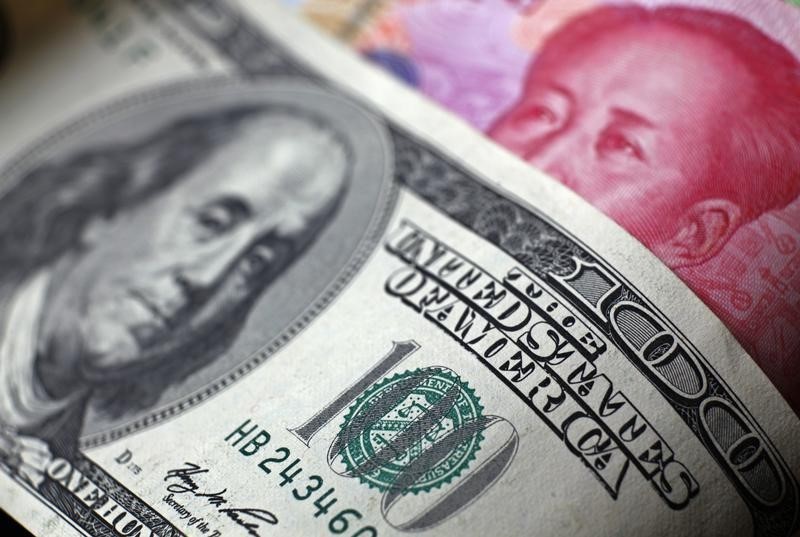 © Reuters.
© Reuters.
Investing.com-- Most Asian currencies rose on Wednesday, while the dollar languished at over two-month lows after weaker-than-expected U.S. inflation data spurred bets that the Federal Reserve was done raising interest rates.
Some positive economic data, coupled with a massive, 600 billion yuan ($83 billion) liquidity injection by the People’s Bank of China also improved sentiment, amid signs of resilience in Asia’s biggest economy.
The Chinese yuan rose 0.2% to 7.2389 against the dollar, also benefiting from a substantially stronger-than-expected daily midpoint fix by the PBOC. The central bank kept its medium-term lending rates on hold on Tuesday.
Government data showed that Chinese industrial production and retail sales grew more than expected in October, indicating that recent stimulus measures from Beijing were bolstering some facets of the economy.
Other Asian currencies also advanced. South Korea’s won rose 0.4%, while the Taiwan dollar and Singapore dollar rose 0.3% and 0.1%, respectively. The Australian dollar fell 0.1%.
Japanese yen muted as weak GDP posits dovish BOJ
The Japanese yen marked a strong recovery from a one-year low in overnight trade. But further gains in the currency were held back by weaker-than-expected gross domestic product (GDP) data.
Data on Wednesday showed that Japan’s GDP shrank much more than expected in the third quarter, as sticky inflation and a weak yen dented private spending.
The reading ramped up hopes that the Bank of Japan (BOJ) will remain ultra-dovish to support the economy for longer. While the move bodes well for the Japanese economy, it points to more pressure on the yen, which was battered by a growing rift between local and U.S. interest rates over the past year.
Traders were also watching for any currency market intervention by Japanese authorities, given that the yen was close to the threshold that had prompted heavy intervention last year.
Dollar at over 2-mth low as weak CPI fuels Fed pause bets
The dollar index and dollar index futures both steadied in Asian trade on Wednesday after logging steep overnight losses.
Data showed that U.S. consumer price index (CPI) inflation grew less than expected in October, pushing up bets that the Fed will have little impetus to hike interest rates further.
Sticky inflation has been a key point of contention for the Fed in maintaining its hawkish stance, especially after inflation rose more than expected in August and September. It still remained above the Fed’s 2% annual target in October.
But given that the Fed signaled that future rate raises will be largely contingent on the path of inflation, October’s reading dampened expectations for a hike.
Still, U.S. rates are likely to remain higher for longer, limiting any major gains in Asian markets.

